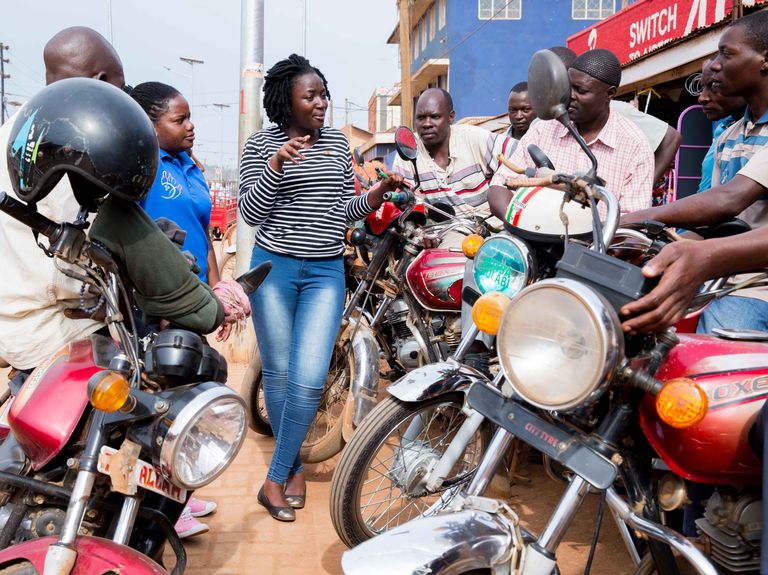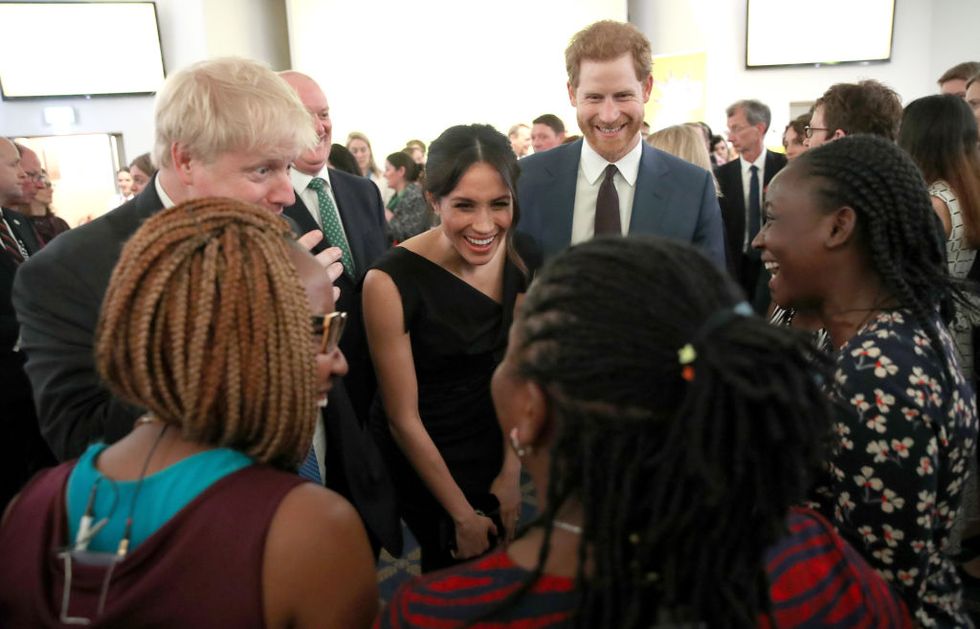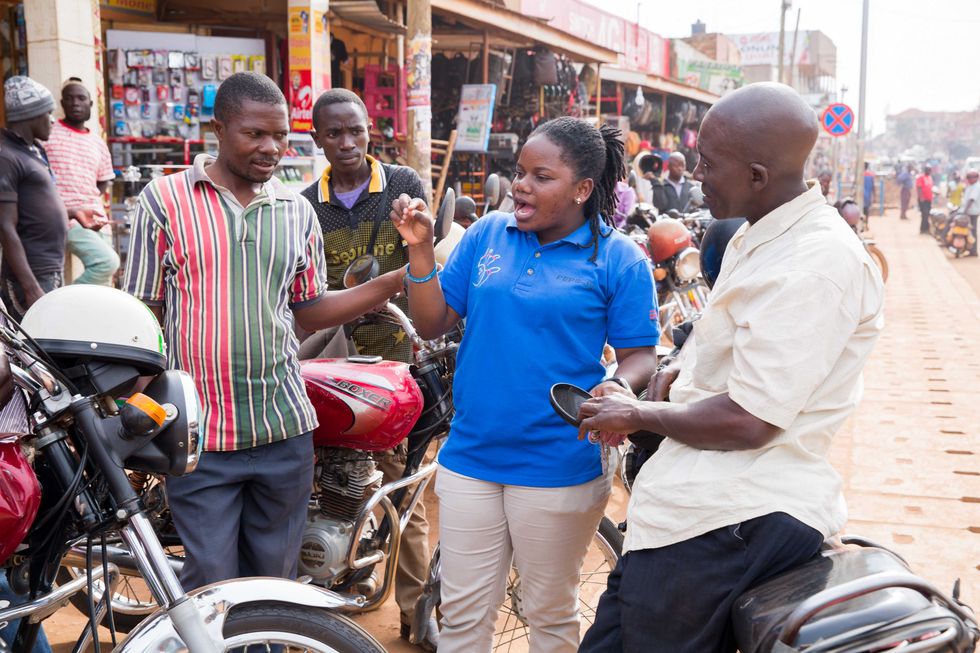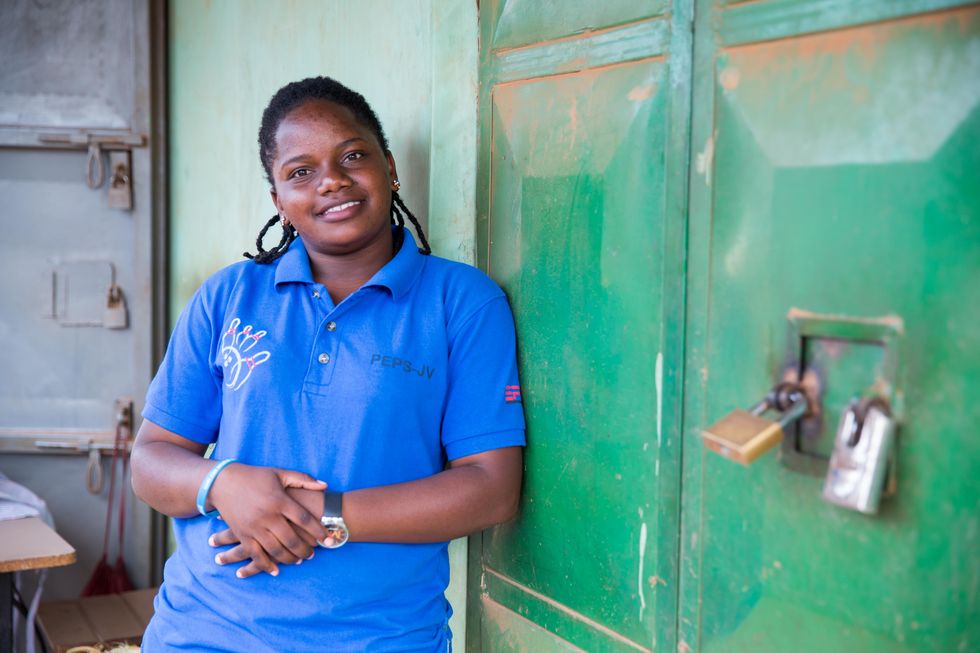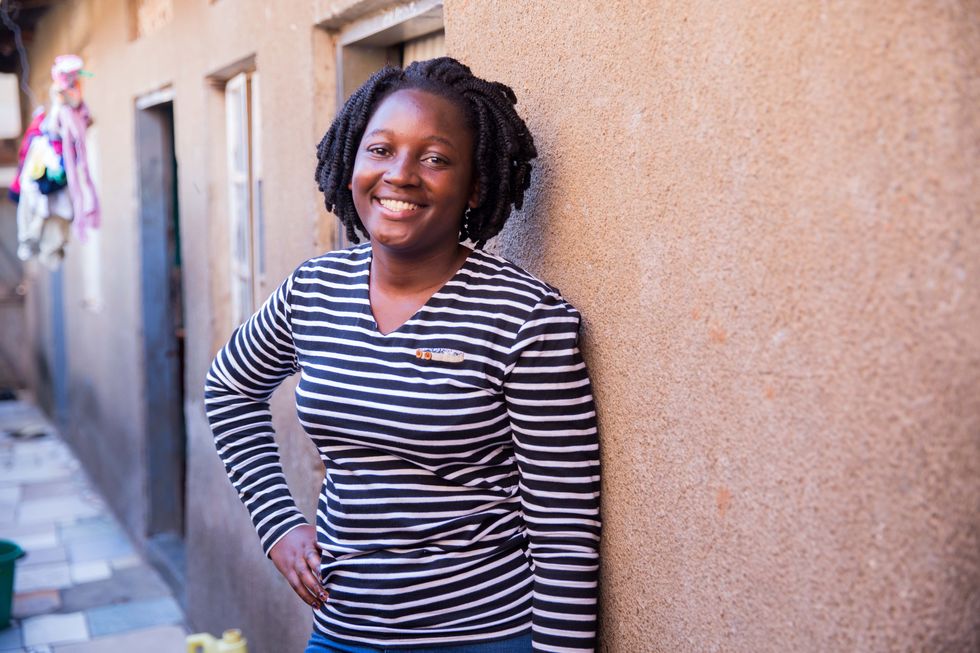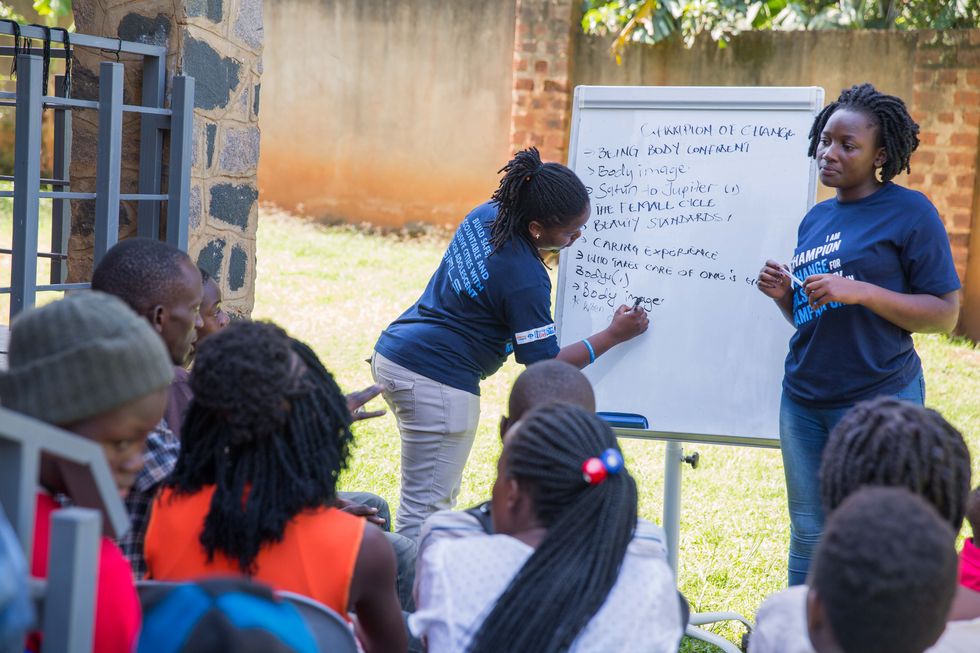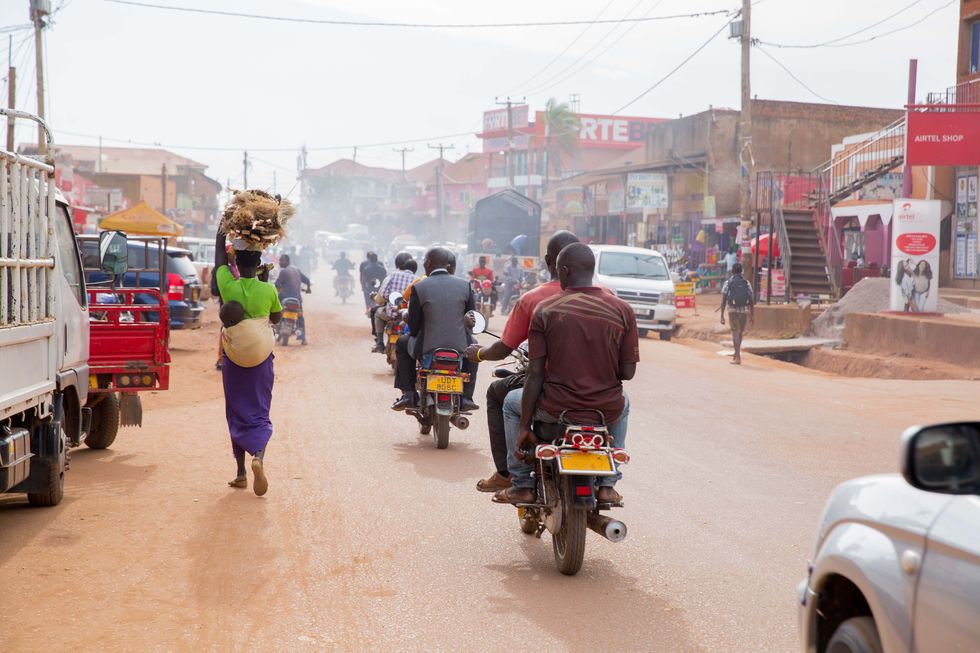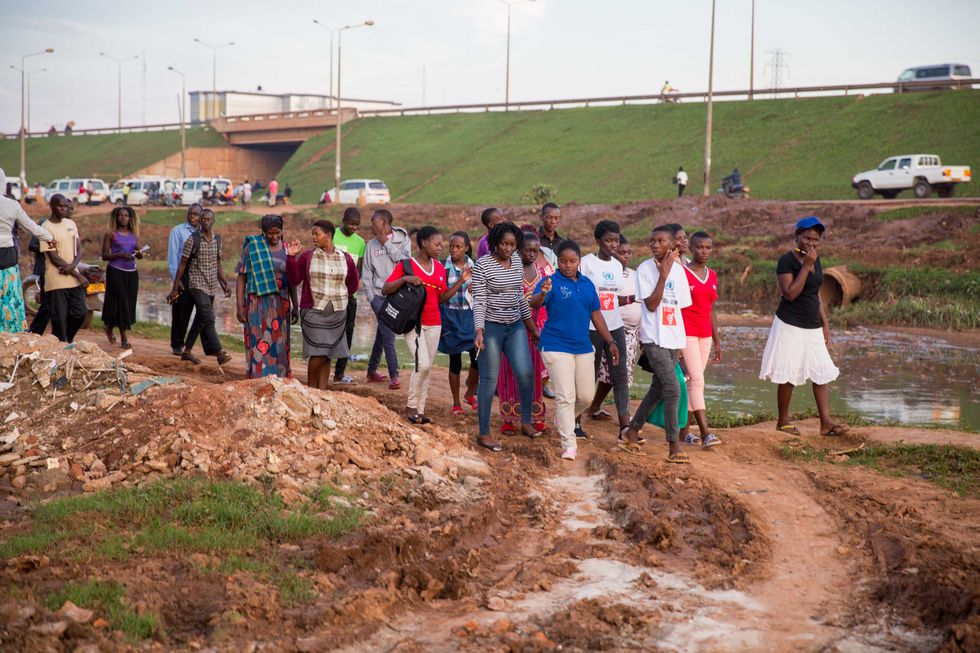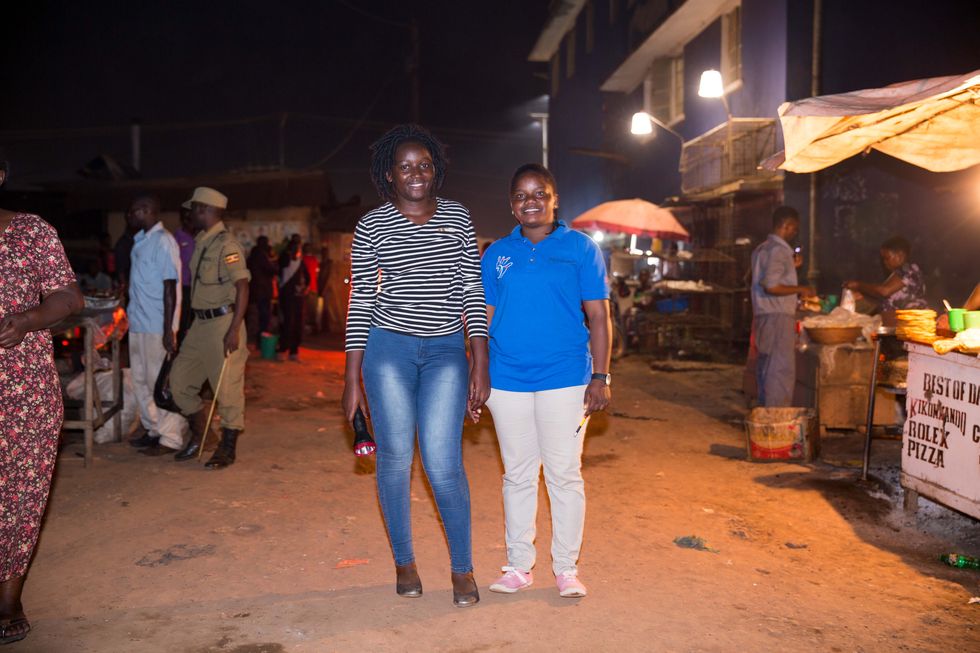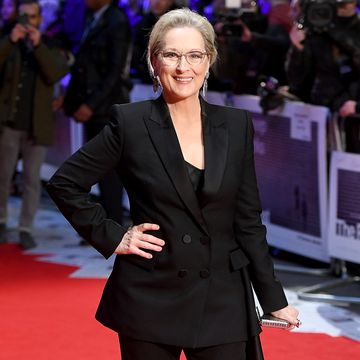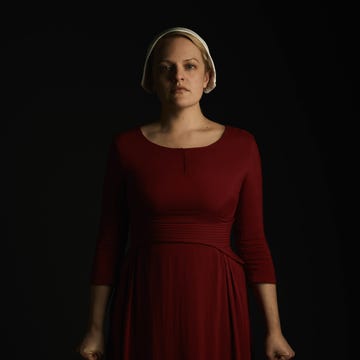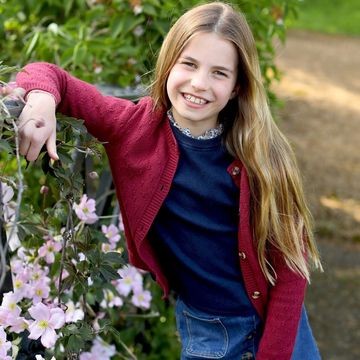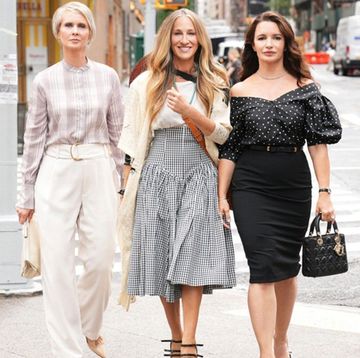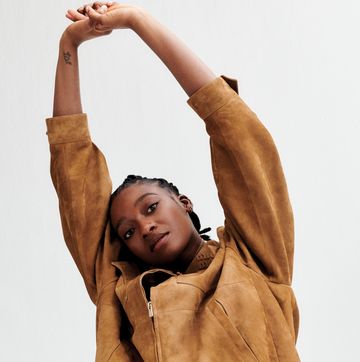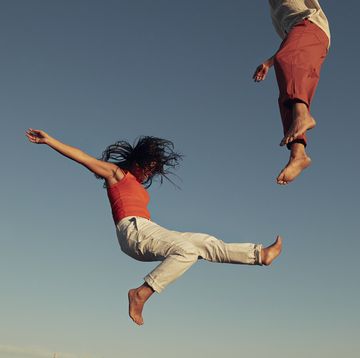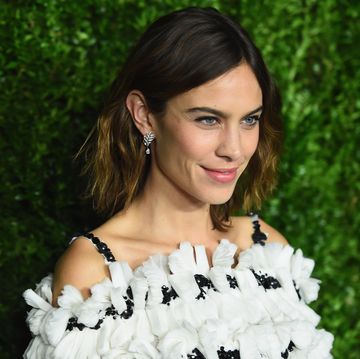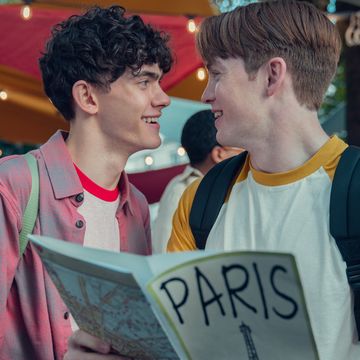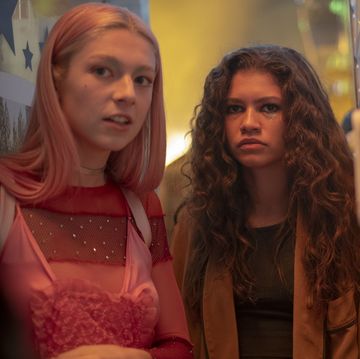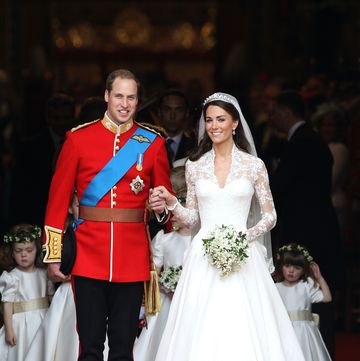In 2013, 80% of girls in Kampala, Uganda's capital, said they didn't feel safe living in the city.
'Most of the problems we face are based on gender,' says 23-year-old local, Norah.
'In our culture, women are seen as sex objects. They are sexualised with no goals and no vision.'
Norah was born in a rural village in Northern Uganda. The youngest of 16 children, she has lived in the capital since she was a child of primary school age, when her father died and her mother sent her to live with her older sister.
In 2013, Plan International, a charity that promotes children's rights and equality for girls, set up the Safer Cities campaign in eight cities around the world, including Delhi, Nairobi and Cairo. The charity invited local women like Norah and Viola to represent their city as youth advocates and, for the last two years, they have been working together to tackle violence against girls in Kampala, where the programme has been providing women with a platform to discuss their experiences and concerns.
In May, Norah and Viola visited London for the first time to speak out about safety in the community and gender equality at the Commonwealth Heads of Government Meeting (CHOGM). Ahead of the summit, ELLE UK met with the young women to discuss the issues women face in Kampala. Later that day, they were introduced to Prince Harry and Meghan Markle at a reception for Women's Empowerment. All in a day’s work, eh?
'Freedom for women in Uganda is not like here,' Norah says motioning to the surroundings of women drinking lattes. 'If a woman came and sat somewhere like here in Uganda, people would talk and say: "Who's she waiting for, is she meeting a man?" We are constantly sexualised, they would always assume we were waiting for a date.'
Norah and Viola host ‘girls clubs,’ where they inform members of their community about their rights. And they work to educate local men about fair treatment of women, as well.
'When we have meetings with the girls, the issue that comes up is that it's in the transit [sector] that there's a lot of harassment,' Norah says, describing the so-called 'boda boda' men who are drivers of motorbike taxis around the city.
'That's when we had to get the transit operators on board because they are the main stakeholders. So, we hold a dialogue about safety and the harassment of girls and we bring in both the transit workers and the girls.'
At these joint meetings, the girls open up about their experiences of sexual harassment, while the men will air what they view as their side of the story. Norah and Viola tell us this often includes putting the blame on women for wearing 'short dresses'.
'They didn't really know what they were doing was harassment,' Viola explains. 'We have had to say to them: "Look, girls have their rights." We have to tell them girls have a right to wear what they feel comfortable in.'
Sadly, the harassment isn’t just verbal. Viola says it's not uncommon for the men to touch women: 'It's a part of our everyday life.'
'They think they have a right,' Norah adds. 'What we do to make them understand it more is say to them to step into the shoes of the parents of the girls. You tell him: "It might be your daughter and she is being told such words, how would you feel as a father?"'
Norah and Viola have found that this direct approach tends to be effective.
The girls explain that in Ugandan society, women using their voices to defend themselves against sexual harassment usually ends with the woman being chastised even more.
'If you say, "I don’t want this", they call you a "wiseacre". In our culture, girls are treated to be so inferior, quiet and accommodating of anything whether it's good or bad,' Norah adds. 'If you try to express your feelings about something to men then you’re a bad girl, you’re not disciplined, you’re wild.'
When women report harassment to the police, they’re then forced to deal with questions like what they were wearing and what they were doing walking alone in the dark, Norah and Viola say. Plan UK is currently developing a training module for local police which aims to tackle some of these issues.
Though re-educating men on women's rights and undoing years of embedded societal norms is a colossal task, Norah and Viola have seen progress already. Transit operators have begun training their workers on harassment and, with the youth advocates, have agreed to a set of guidelines which their workers must adhere to. There's also now a bank of data where drivers' information is stored.
And Norah and Viola are just getting started.
For Norah, who has recently finished her university degree in business administration and accounting, her next steps will involve teaching the women in her country what their rights are and what they can do to challenge gender stereotypes. She hopes to work for an NGO and eventually run her own school, objectives encouraged by her aim of making sure Ugandan girls realise they are not inferior second-class citizens.
Viola devotes her time to working with teenage mothers. Many women who give birth at a particularly young age in the country face a barrage a negativity and hostility from their communities.
'I want to empower them and their children so they can also achieve their goals. In Uganda, it's considered that once you conceive that's the end of your future and all you face is stigma and discrimination,' she says.
'I'm looking forward to empowering these mothers.'
Something tells us, she'll get the job done.

